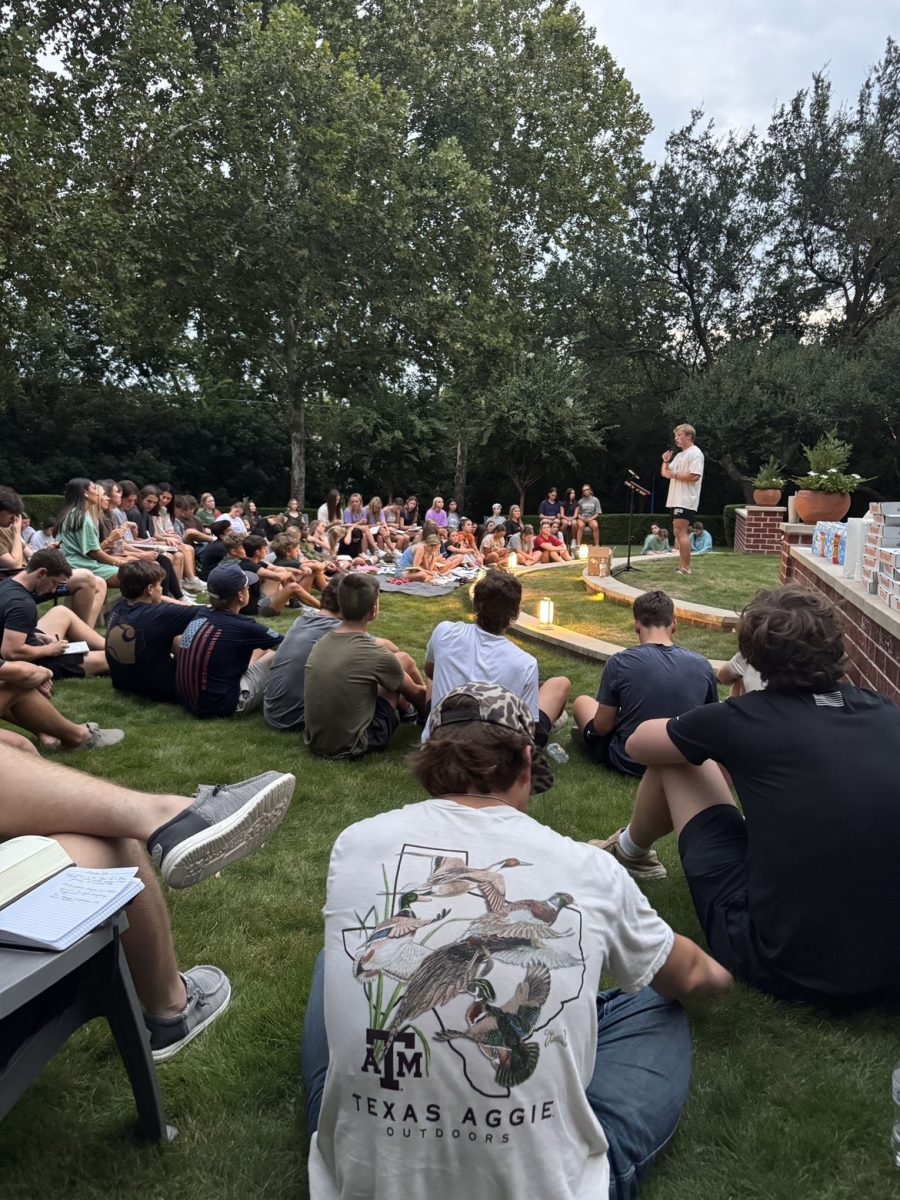It’s Tuesday night at 10:07 and a student’s desk might be covered with WHAP notes, an English essay, and APAH reading still unchecked. Sports practice, extracurricular, or club activities could have used all the earlier time of the day leaving the student to be forced to start their homework this late at night. But one teacher at the high school has established a no homework policy for his classes to lighten the load on students at night.
“My policy is that there is no homework in this class,” animation teacher Ray Cooper said. “Anything we do in my class is done in my class. If students want to do something outside of class, then sure they can do that. But it is not a requirement.”
There are reasons why Cooper decided not to give homework.
“The first thing is that we use specialized software in this class, it is not fair for me to say ‘This is due tomorrow’ because students might not have to software to get it done,” Cooper said. “You know how teachers do that. ‘Oh this is homework because we couldn’t have worked on it in class’. If a student didn’t have Photoshop then that wouldn’t be fair.”
That has been his policy even when he worked at the middle school. But once he got to high school, it became out of respect for the students time.
“I have two teenage daughters and they have a lot of homework,” Cooper said. “They will ask me how to do stuff and I might not know the answer and that frustrates them and it frustrates me. They spend too much time just doing homework. I’m lucky because I have a class that is an elective and people choose to be here. They want to be here for one reason or another.”
In general, Cooper’s stance against homework is no. Technology is a way to make students and teachers more efficient, Cooper said.
“I don’t think other teachers want to hear that,” Cooper said. “If I were in English or science I would have to come up with creative ways to do things. But I think the short of the long is we have this system that is set up for the past. I don’t think teachers would buy into ‘Hey we aren’t going to do anymore homework because students don’t think it’s right.’ I think that there is middle ground.”
Even though Cooper tried not to give homework when he was a science teacher, some science teachers disagree.
“In science and math classes people often make what we call silly or stupid mistakes,” physics teacher Dirk Horst said. “The only way to get rid of those mistakes is to practice enough times. That might be different person to person. Some people need less practice than others, but everyone still needs to practice.”
As an animation teacher, Cooper likes to incorporate technology as much as he can. He used things like the flipped classroom technique and auto-graded quizzes like Quia.com.
“I think with technology there is a lot of things you can do,” Cooper said. “If something can be graded by a computer, it should be. Less work for the teacher, and it also gives them immediate feedback. That is using technology in an effective ways.”
Cooper also uses tools like Google Drive which helps direct students toward their learning objectives for the day.
“In the past, it was really teacher-centered,” Cooper said. “You would sit down with your pencil and wait for the teacher. Well there is no reason for that. We need to make it as student centered as possible. But with the flipped classroom technique, students are doing work at home but they are not struggling at home. So when they come the next day, they are there with their teacher. So then they can ask what do in the concept they have already been taught.”
Some experiences from high school give Cooper reasons why this system would work better.
“My math teacher from high school, who will remain nameless, sat at an overhead every day and just did math problems,” Cooper said. “I didn’t have anything to look back at and I didn’t know how to do my homework. I think homework needs to be as student-centered as possible, but that doesn’t mean we abolish it altogether. But I think we need to work smarter. I think we do things because it’s the way we have done things. But I think Lovejoy has done a good job, in my opinion after teaching at other schools, to get out of the mold as much as we can. But there are state requirements of things we have to do.”
Cooper said it just comes down to how busy students are.
“I have the freedom, though, that I have to have deadlines for the times I need kids to know things by,” Cooper said. “Some teachers might say ‘Well there is a lot of homework in college’. But just because it is messed up in college, does that mean we have to support that here? I know someone can shoot holes through my arguments, but I just don’t think we are having these conversations.”
Reasons for Cooper go deeper than some think.
“I don’t not give homework because I want people to think I am cool,” Cooper said. “That is not what it is about. It is literally about kids not having to go home and do anything for my class because I know they have a hundred other things to do. It is just not fair.”
Recently, a tweet by Cooper drew more attention than initially thought.
“My tweet got a lot more attention than I thought it would,” Cooper said. “The thing that I got the most out of that is that my junior daughter started following me on Twitter after I made that stance. I didn’t follow her back at first though because I didn’t want her to think I was spying on her. But anyways, before that tweet, I already knew how students felt. I know they don’t want to go home and get crushed by homework.
“But it was interesting to see some of the comments that parents made on that tweet. They said things like ‘Don’t forget about all the family time we miss out on’ or ‘All the fights that break out because they don’t know how to do the homework.’ I know parents, and teachers for sure, might be thinking, ‘We only have so much time in order to get to a point.’ But our kids get there. If you look at any test in the state, Lovejoy ranks well. I think, this is an overstatement, but a little bit of us is dying to get there. It makes kids hate school.”
A song that was popular when Cooper was in school explains his feelings well.
“Like the song ‘Another Brick in the wall,’” Cooper said. “It’s about kids getting the joy of learning squashed out of them. By the time they are out of elementary school, there is no relevance to them. If kids think ‘How does this relate to me?,’ then they won’t do it. I mean even I don’t want to go sit through something that isn’t relevant to me and the only reason being ‘I said so’. We put pressure on kids by saying ‘Well on the ACT or SAT you have to…’
“I think school should be about learning how to think and learning how to obtain knowledge. Giving kids the opportunity and the tools that they need so when they graduate college, they are prepared for whatever they decide to do. My philosophy is if a teacher can’t tell you why you are doing something, then you shouldn’t be doing it. ”
Students like senior Kendall Berger say Cooper’s approach has impacted them.
“I think that his no homework policy is really great because we are at school for so long every day and having to go home and do more homework is kind of like a buzzkill,” Berger said. “I think he is one of the most awesome people ever. He is always so happy and crazy and I love it.”
Cooper is happy with everything he has done.
“When I am on my deathbed, I will have a clear conscious,” Cooper said. “I always think about how I would want to feel. I am lazy and I know they would just like to lay their heads down and sleep but we can’t do that. I think Mr. Mayfield has a good philosophy this year that we aren’t just addressing school academic stuff but also we are having fun.
Cooper said that some people might accuse him of having too much fun. But he added that he’s OK with that if it has a positive effect on his students.
“Yesterday a kid came back to visit me,” Cooper said. “That meant I have touched him somehow. He may have not learned the best web techniques, but I was there at a moment they needed me. We only do high school once and we need to get it right.”

















